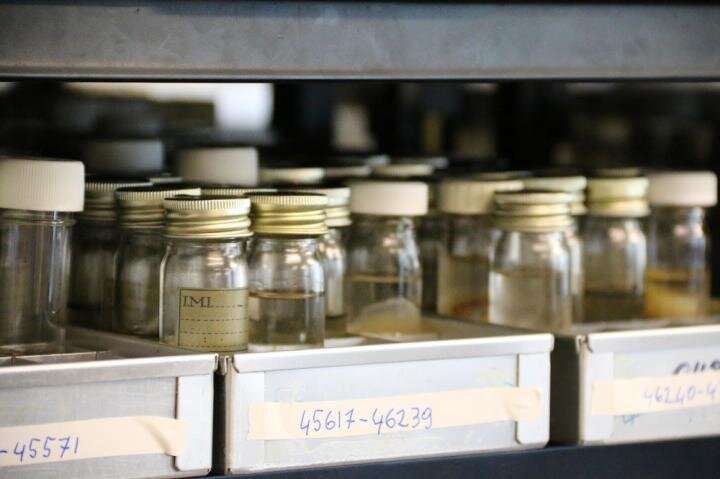
Scientists are deploying cryotechnology to help keep key UK crops secure at very cold temperatures in a bid to safeguard food security and improve yields.
The construction of the UK Crop Microbiome Cryobank (UK-CMCB) – the first publicly available resource of its kind anywhere in the world – is now complete after three years of research.
The Cryobank hopes to facilitate the sustainable yield improvement of six major crops including barley, oats, oilseed rape, potato, sugar beet and wheat.
Scientists from the UK’s agricultural research institutes created the facility to safeguard future research and enable yield improvement for the six crops.
It uses state-of-the art cryo research techniques to preserve important crop microbiome samples obtained from the different crops, which are grown in a range of UK soil types.
The resource also includes living microbial material as well as genomic and metagenomic sequences (DNA) from the crop root environment.
The facility – likened to a ‘Noah’s Ark’ of UK microbes – deploys UK-developed cryotechnology that uses liquid nitrogen to keep the valuable crop microbiome samples secure at very cold temperatures for generations to come.
All the resources were characterised using advanced DNA sequencing techniques, allowing scientists to discover what microbes and viruses are present in the root microbiome.
Dr Matthew Ryan, genetic resource collector at CABI, said preserving crop microbial samples would provide researchers a unique snapshot in time.
"If you like, it is a ‘Noah’s Ark’ of UK microbes from crop systems and one that has many potential exciting uses,” he said.
"We will generate a representative, valuable and unique resource from key UK crop systems that will become a vital resource for scientific researchers for generations to come.
“We will be using UK-developed cryotechnology that uses liquid nitrogen to keep the samples secure at very cold temperatures."
Dr Tim Mauchline, plant microbiologist at Rothamsted Research, added there was a 'clear need' to increase food production while reducing reliance on chemicals.
“Soil health is particularly important. If we can better understand the function of microbes present in our soils we can use this information to help farmers produce sustainable crops.
"It is imperative that biological solutions are found to help ensure the UK’s food security."
The UK-CMCB project, funded by UKRI BBSRC, brought together experts from CABI, Rothamsted Research, SRUC, James Hutton Institute and the John Innes Centre.
